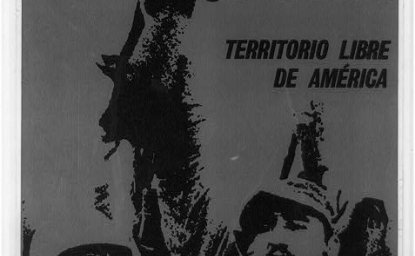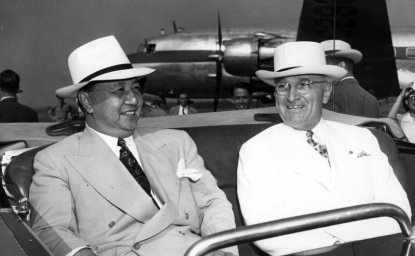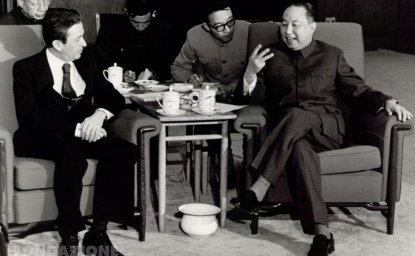Image: A toppled statue of Stalin in Hungary, 1956. Source: Fortepan #93005, via Wikimedia Commons, CC BY-SA 3.0.
On October 19, 2019, the First University Radio of the City of Pest (EPER) at Eötvös Loránd University in Budapest began broadcasting hour by hour the complete Radio Free Europe Hungarian program schedule just as it had been on the air 63 years ago.
The University Radio utilized the full set of RFE Hungarian broadcasts from 19 October to 12 November, 1956, that were digitized and transcribed by the Collection of Historical Interviews of National Széchényi Library and made available online on demand.
It is a small miracle that these recordings exist. They are part of log recordings on twelve-track tape of all RFE language broadcasts from the RFE shortwave transmitters in Biblis, Germany.
Such transmitter recordings were normally only retained for a few months, as required by RFE’s German broadcasting license. As public controversy about RFE’s Hungarian broadcasts developed in late 1956, the German Foreign Office requested the recordings for review. Once the review was completed, the tapes were returned to RFE.
But they were soon sent back to the Foreign Office to keep them out of reach of the media and German labor courts, where RFE employees were challenging terminations issued in the wake of the controversy. The Foreign Office, lacking archive facilities, sent the tapes to the Federal Archives in Kobllenz – where they remained untouched for half a century. (I tell this story in “A Note on the History of the RFE Hungarian Broadcast Archives,” in my book Radio Free Europe and Radio Liberty; the CIA Years and Beyond, on pages 129-130).
In 2000, RFE/RL organized a project to recover from the archaic tapes in Koblenz the 1956 Hungarian recordings (and those of the other RFE languages). It provided a copy to the National Széchényi Library, its archive partner, who digitized the recordings and then transcribed them – all 400 hours – and put them online. They are the only preserved recordings of RFE/RL transmitter output (as distinct from studio tapes prepared for broadcast) for the entire period from 1950 to 1995.
Comparable RFE Polish broadcasts for this period were processed and placed online by Polish Radio. Comparable RFE Romanian broadcasts were processed by the Romanian Institute for the Prosecution of Communist Crimes and the Memory of the Romanian Exile and will be online on the RFE/RL Romanian Service web site.
RFE’s controversial 1956 Hungarian broadcasts have been the subject of many governmental and scholarly analysis, including those by myself and by Charles Gati (Failed Illusions: Moscow, Washington, Budapest and the 1956 Hungarian Revolt). Postmortems and related documents are available in the RFE/RL Corporate Collection at the Hoover Library and Archives and in the Wilson Center Digital Archive.
We can never know with certainty what Hungarian listeners thought they heard when they tuned to a multiplicity of Western Hungarian-language radio broadcasts in October and November 1956. We do know now with certainty, thanks to the 1956 RFE Hungarian broadcasts online at the National Széchényi Library and rebroadcast hour by hour by the University Radio of Pest, what RFE actually broadcast (and did not broadcast) in Hungarian during those fateful weeks of late 1956.








